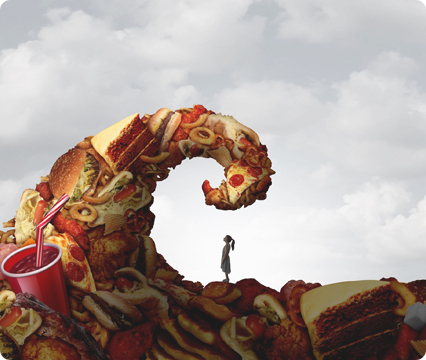Association between dietary habits and depressive symptoms in university students: A cross-sectional study using the Japanese version of the Quick Inventory of Depressive Symptomatology (QIDS-J)
Relationship between eating patterns and depressive symptoms in university students
With rising mental health concerns among young people in Japan, particularly due to increasing suicide rates linked to depression, this study by Harada, Homma & Miyakawa (2025) examined the relationship between eating patterns and depressive symptoms in university students. In 2022, researchers administered a self-administered survey to 451 Hosei University students via Google Forms. The survey used the Japanese version of the Quick Inventory of Depressive Symptomatology (QIDS-J) – adding unique items regarding eating habits – and dividing the students into two groups according to the results (those with depressive symptoms [score ≥ 6] and those without). Of the students who provided accurate answers, 46.3% reported having mild to severe depression symptoms. Frequent consumption of high-carbohydrate meals, skipping breakfast, poor nutritional balance, awareness of irregular eating patterns, and a strong desire to lose weight were among the dietary characteristics that were substantially associated with these symptoms. High carbohydrate intake showed the most prominent association. Notably, the relationship between soft drink consumption and depressive symptoms varied between student athletes living in dormitories and general students, highlighting the influence of different lifestyles. The results point to a possible link between university students’ depressed feelings and their poor eating patterns. The authors conclude that carbohydrate-rich diets may have a negative impact on mental health. To investigate causal links, further longitudinal research is required. [NPID: Carbohydrates, depressive symptoms, dietary habits, QIDS-J, university students]
Year: 2025
 Navigation
Navigation







